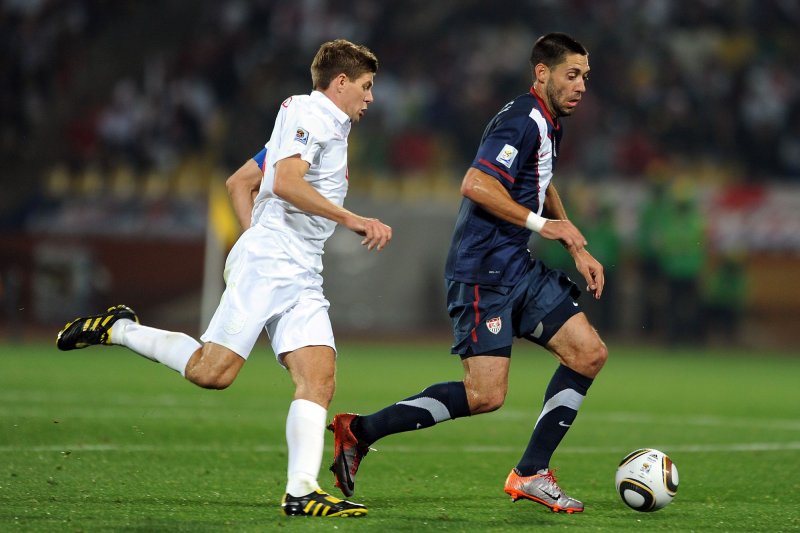Researchers used Steven Gerrard, former Liverpool and England player, as an example of a footballer with exceptional vision and intelligence. Photo by UPI/Chris Brunskill |
License Photo
Sept. 13 (UPI) -- New research shows young soccer players, or footballers, should spend more time learning to scan the playing field and less time working on ball skills.
Often, youth soccer coaches emphasize balls skills: dribbling, passing and shooting. But new analysis by sports psychologists at the universities of Chichester, Portsmouth and Limerick suggests more time should be spent learning to read the game and interpret the playing field.
By developing both a player's ball skills, as well as their spatial awareness and soccer intelligence -- their "football vision" -- coaches can help young soccer players to combine skill and gameplay.
When researchers surveyed coaches on their teaching philosophies, they found more experienced coaches were aware of the importance of football vision, while younger, less experienced coaches remained in the dark. The less experienced coaches focused almost exclusively on technical skills.
The research team shared their findings in the journal Psychology of Sport and Exercise.
"Coaches who didn't subscribe to training players to scan the field and look around them tended to think players needed to focus on technical skills, then learn tactical skills," Craig Pulling, researcher at the University of Chichester, said in a news release. "Whereas coaches who knew the benefits of scanning, and believed in the importance of teaching it young, believed the two went hand-in-hand."
Researchers also found more experienced and better trained coaches tended to employ more sophisticated ways of teaching and developing football vision.
"It appears that higher coaching qualifications in tandem with a greater amount of coaching experience leads to coaches developing a positive attitude to the importance of training scanning," said Matt Dicks, researcher at the University of Portsmouth.
According to the study's authors, more work is needed to determine how best to develop a player's football vision and intelligence.
"There were indications though that scanning may be best enhanced through changing practice conditions such as altering the pitch size, number of players and the use of different colored bibs or headbands, to require players to quickly learn the value of always looking around," Dicks said.















